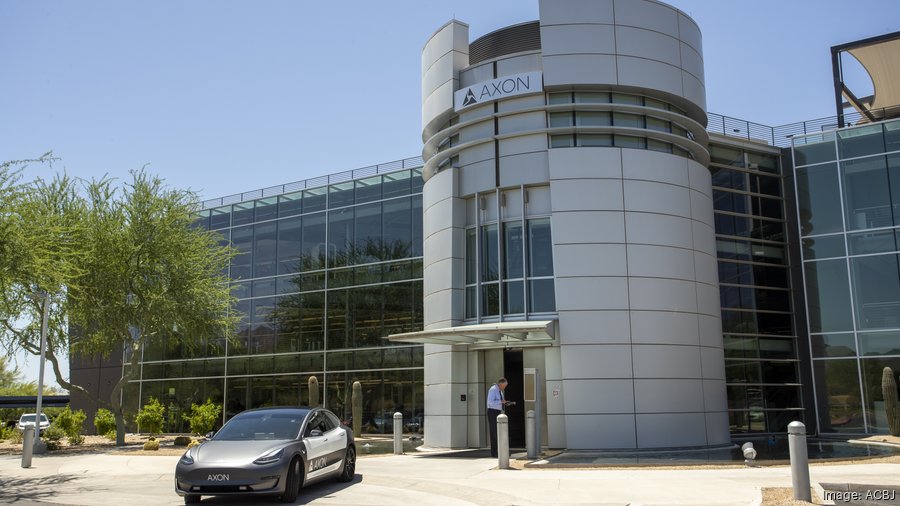Growth in prekindergarten slowed in recession
Jan 17, 2012, 7:03 PM
AP Education Writer
WASHINGTON (AP) – The expansion in public prekindergarten programs has slowed and even been reversed in some states as school districts cope with shrinking budgets. As a result, many 3- and 4-year-olds aren’t going to preschool.
Kids from low-income families who start kindergarten without first attending a quality education program enter school an estimated 18 months behind their peers. Many never catch up, and research shows they are more likely to need special education services and to drop out. Kids in families with higher incomes also can benefit from early education, research shows.
Yet, roughly a quarter of the nation’s 4-year-olds and more than half of 3-year-olds attend no preschool, either public or private. Families who earn about $40,000 to $50,000 annually face the greatest difficulties because they make too much to quality for many publicly funded programs, but can’t afford private ones, said Steven Barnett, director of the National Institute for Early Education Research at Rutgers University.
And as more students qualify for free or reduced lunch _ often a qualifier to get into a state-funded prekindergarten program _ many families are finding that slots simply aren’t available, he said.
In Arizona, a block grant that funded prekindergarten for a small percentage of kids was cut altogether, although a separate public fund still supports some programs. In Georgia, a drop in state lottery dollars meant shaving 20 days off the prekindergarten school year. Proposed cuts in such programs have led to litigation in North Carolina and legislative battles in places like Iowa.
But even in states like New York, where state funding available for prekindergarten has remained relatively steady in recent years, fewer children have access to the programs because inflation has made them more expensive or districts can’t come up with the required matching dollars, said Billy Easton, executive director of the Alliance for Quality Education in Albany, N.Y.
Today’s climate contrasts with that of 2007, when then-New York Gov. Eliot Spitzer promised universal, public prekindergarten for all 4-year-olds. Other governors made similar commitments when the economy was stronger.
Far from meeting Spitzer’s goal, just 40 percent of 4-year-olds attend a state-funded prekindergarten program in about two-thirds of the state’s school districts, according to the advocacy group Winning Beginning NY.
“I think it’s a moment in time when we have to really push harder,” Easton said. “Pre-K is proven to be the most effective education strategy that we can invest in. What it means is that because we failed to live up to our commitment so far to our youngest children, more of them will end up out of work or they will make less money than they would’ve otherwise and more of them will end up in prison.”
Barnett’s institute has estimated it would cost about $70 billion annually to provide full-day prekindergarten to every 3- and 4-year old in America, including before- and after-care services.
About 40 states fund prekindergarten programs, typically either in public schools or via funds paid to private grantees, for at least some children. That’s in addition to the federal Head Start program, which is designed to serve extremely poor children and offers a broader range of social services. In some places, state-funded prekindergarten and Head Start programs are combined.
Typically, state-funded prekindergarten programs have a narrower focus on education and cognitive development and serve a broader population than the federal Head Start program, which serves nearly 1 million kids.
In Wisconsin, school districts that offer prekindergarten to 4-year-olds must offer it universally, and roughly 90 percent of districts do. But budget cuts mean districts are forced to make other changes like increasing the size of pre-K classes.
“Unfortunately, as the awareness and the need (for early learning) becomes more and more evident, our money gets tighter and tighter and tighter and more programs are not instituted in those areas,” said Miles Turner, executive director of the Wisconsin Association of School District Administrators.
Three states offer prekindergarten to all 4-year-olds, according to Pre-K Now, a decade-long project of the Pew Center on the States.
The District of Columbia goes a step further, with universal pre-K for 3- and 4-year-olds. The program is viewed by many as not just a way to help low-income children in the historically low-performing district, but also as a driver to keep middle- and upper-class families in the city and the school system.
At D.C.’s Powell Elementary School, 3- and 4-year-olds sit cross-legged with whiteboards and black markers in hand as teacher Laura Amling belts out, “Up, down, up, down” over classical music. The tots scribble marks similar to an “M” at her command.
This program is not child care. The schedule is filled with Spanish and other lessons, including “buddy reading,” with kids describing books to one another.
The kids eat breakfast and lunch family style, so they learn proper etiquette. Songs are sung as the children move to activities to help curb behavior problems. Teachers teach children coping skills and make home visits to bond with parents and children.
While it’s too early to know the long-term impact, Principal Janeece Docal says kindergarteners with a pre-K background are writing sentences and discussing books with 3rd-grade level content.
“They trust their teachers. They love their friends,” Docal said. “They are invested in their education and you can see that they own that classroom.”
Added Amling, “They want to learn and they are really so happy.”
Over the past decade, state dollars for prekindergarten more than doubled nationally to $5.1 billion, while at the same time access increased from a little more than 700,000 children to more than 1 million, according to Pre-K Now.
But cuts in state-funded programs began showing up in the 2009-10 school year, according to Barnett’s group. He said he’s concerned not just that fewer children will be served, but that the quality of the programs will also be affected.
Still, early childhood learning advocates say they are encouraged, in part, because of a recent federal emphasis on improving early childhood programs.
Nine states were awarded a collective $500 million in grants last month to improve access to and the quality of early childhood programs for kids from birth to age 5. A month earlier, President Barack Obama announced new rules under which lower-performing Head Start programs will have to compete for funding.
Not everyone is convinced it’s worth the cost.
Chester E. Finn Jr., president of Thomas B. Fordham Institute and a senior fellow at the Hoover Institution of Stanford University, said the government should tightly target its resources on families who really need the prekindergarten programs and otherwise aren’t going to get them.
Finn, who has written a book about preschool policy, said Obama’s effort on Head Start is a beginning, but more needs to be done. Finn also questioned whether the government was capable of funding universal prekindergarten at a quality level.
“What the universal programs do is they provide an unnecessary windfall for a lot of families that are otherwise doing this on their own just fine, or pretty well, and not enough for kids who really need it,” Finn said.
Richard M. Clifford, senior scientist at the FPG Child Development Institute at the University of North Carolina at Chapel Hill, said other developed countries _ including much of Europe _ provide prekindergarten programs.
“Kids come into the regular school better prepared to succeed in school,” Clifford said. “In the long term, eventually, I think you’ll see all 4-year-olds be eligible for pre-K in this country, but it will take a long time.”
___
Online:
Alliance for Quality Education:
http://www.aqeny.org
FPG Child Development Institute:
http://www.fpg.unc.edu
Head Start:
http://www.acf.hhs.gov/programs/ohs
National Institute for Early Education Research:
http://nieer.org
Pre-K Now:
http://www.preknow.org
Thomas B. Fordham Institute:
http://www.edexcellence.net
___
Kimberly Hefling can be followed at
http://twitter.com/khefling
(Copyright 2012 The Associated Press. All rights reserved. This material may not be published, broadcast, rewritten or redistributed.)








